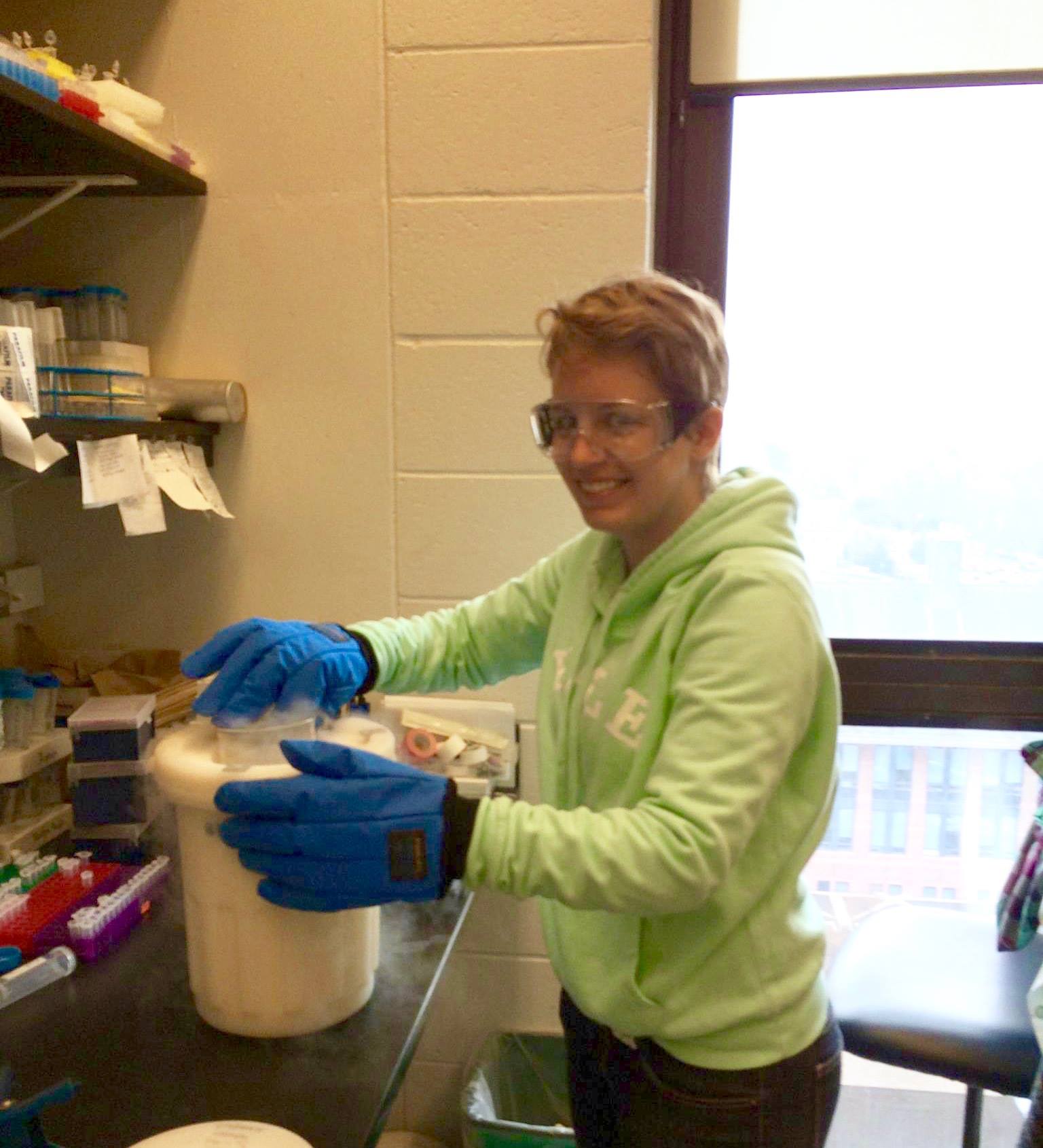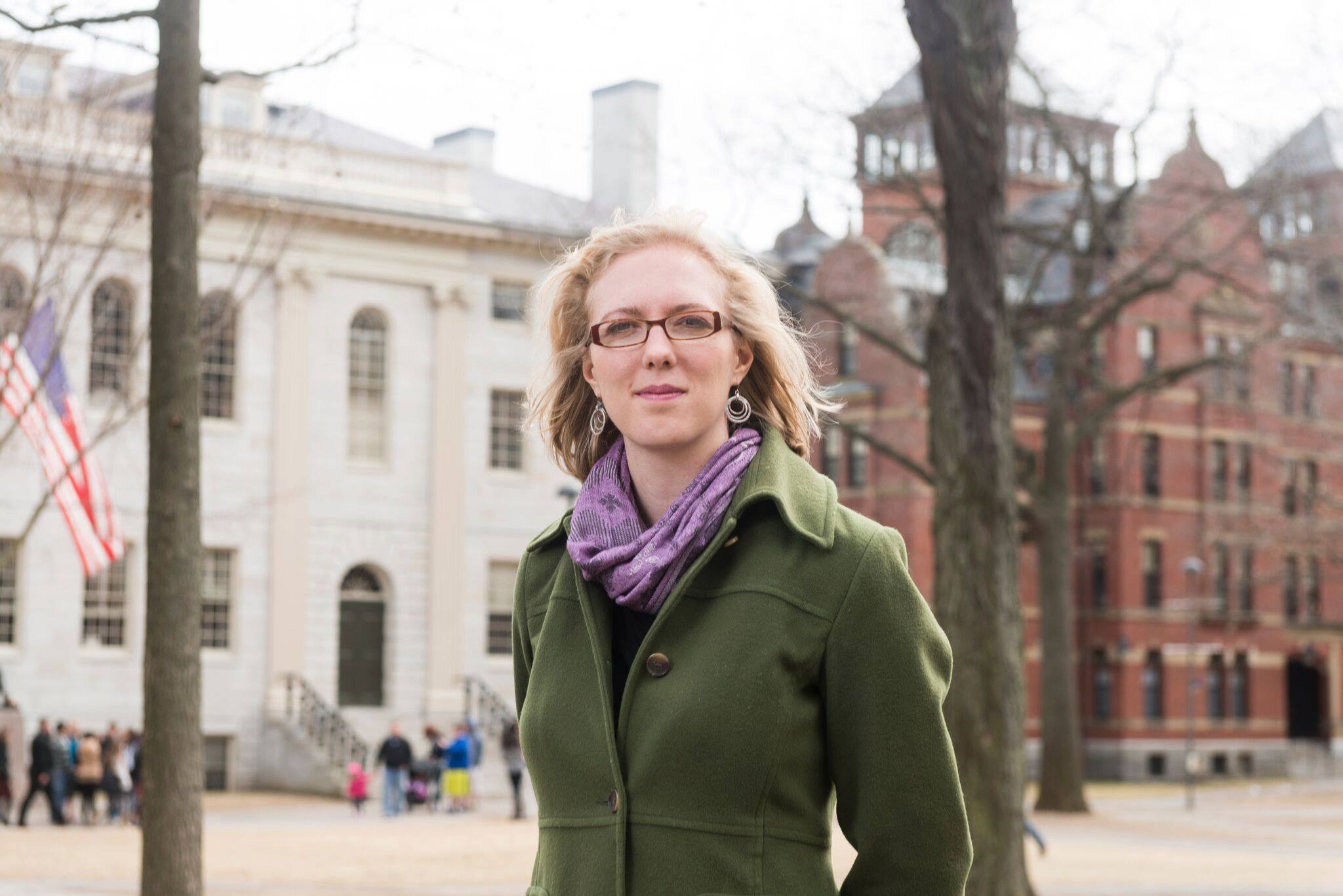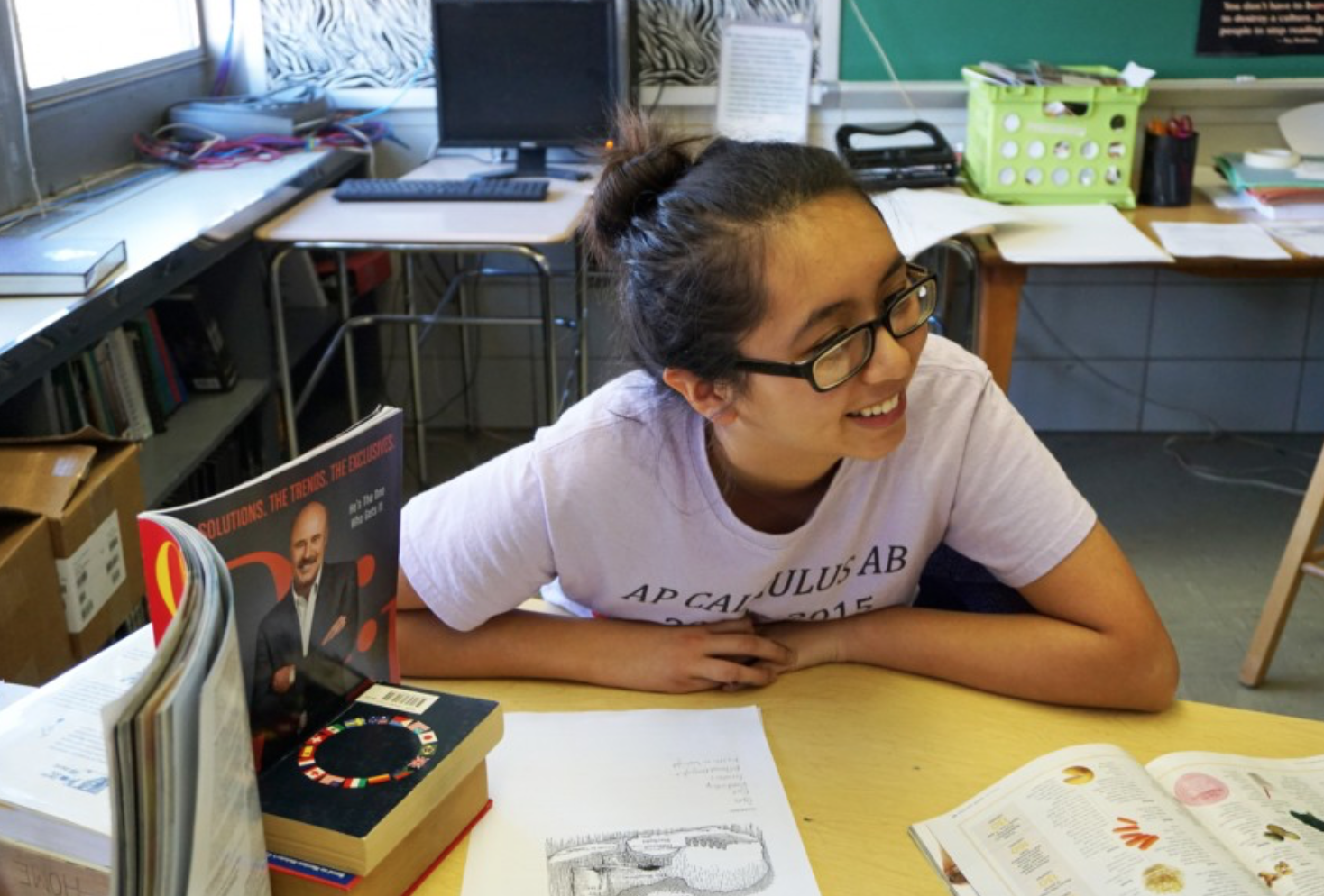Johns Hopkins University
Sarah Preheim grew up in Milton, Massachusetts. She earned her B.S. in Biological Sciences from Carnegie Mellon University. After graduating, she took a job as a technician in a clinical research laboratory at Johns Hopkins University, spent a year in Thailand and returned to Massachusetts to work as a laboratory technician in Woods Hole at the Marine Biological Laboratory. She returned to school to earn a PhD in Biological Oceanography from a joint program between Woods Hole Oceanographic Institution and Massachusetts Institute of Technology (MIT). She worked as a postdoctoral associate in the Department of Biological Engineering at MIT before taking her current position as an Assistant Professor at Johns Hopkins University in the Department of Environmental Health and Engineering. She currently researches microbial processes that impact water quality, with emphasis on harmful algal blooms and oxygen-free dead zones.
What motivated you or inspired you to go into your field?
It's hard to identify one thing that inspired me or motivated me to choose environmental science- so many little things happened throughout my life that ultimately got me to this point. The first motivation for me to do what I love came from my childhood- encouragement from my parents, teachers or others that I should find myself and I should pursue what makes me happy. For me, that meant constantly re-evaluating what things I did or did not enjoy doing. I started out being interested in art, then architecture, then biology and finally microbiology and oceanography. At every point along the way, I asked myself whether this played to my strengths and interests.
Another motivation for me was to choose a field that I felt was important. Not just pretty important, but "Save the world from destruction!" kind of important. Over time, disappointments and hardships will threaten to derail you unless you have a steadfast and undying belief that what you are doing really matters. Finding that has kept me on track, even when things get difficult.
What were the first few steps you took to pursue your field in STEM?
Choosing to work hard in school and valuing education was probably one of the first steps that lead me to this career. Understanding the value of education is the key to being successful in many fields, including science and engineering. After college, I took a job as a research technician in medical and scientific labs to see whether I enjoyed doing research. Although the subject matter changed between jobs, I was pretty sure that I wanted to continue to do research in an academic setting. Finally, I decided that I wanted to direct the research into areas that I found most interesting, which required me to get a PhD, post-doc and finally become a professor.
I decided to work at the Marine Biological Laboratory in Woods Hole after living abroad for just over a year, which solidified my desire to pursue both microbiology and aquatic sciences. Being around the Woods Hole Oceanographic Institution gave me the opportunity to meet people in the program and ultimately helped me get into the PhD program associated with MIT. MIT is an amazing institution, and I really benefitted from interacting with so many smart and talented people. The opportunities and experiences I gained at MIT were invaluable and ultimately helped me get the job I currently have at Johns Hopkins.
What are some of your responsibilities? What is the environment like in your workplace?
Being a professor at a research institution means I need to conduct scientific research, teach classes and engage in activities where I can use my expertise to serve other groups both in and outside of the university. It's a challenge to balance all of this, but these activities are not mutually exclusive. For example, I can help local high school students get valuable research experience by hosting them in my lab, which serves the local community and also helps me conduct research. Being knowledgeable when writing scientific papers means I need to read a lot of what other people have done, but I get credit for teaching when we discuss the papers I'm reading in class. With a little thought and creativity, I'm finding ways to blend these responsibilities together but still get credit for all three.
The best thing about my workplace is the people who are willing to help me or offer advice, or who want to collaborate with me. I've been so grateful for all of the people who have contacted me, or who have been receptive to my inquiries to collaborate, commiserate or provide advice about how to get things done. There are also a lot of resources around the university, so I have so far been able to get the things I need without too much of a hassle.
That being said, things are not always perfect. I've been in a number of uncomfortable meetings where people get upset about certain policies or decisions. However, most of those conflicts have been resolved with persistence and patience, on the part of both parties. Conflicts do exist, but they do not dictate the tone of the workplace.
What has been the most rewarding about your career?
I really enjoy the job I have because it allows me to be curious and explore the world like a child might, only with sophisticated toys. Scientific discovery at its heart is just trying to figure out how the world works (before anyone else does). When you figure things out, its so satisfying and opens the door to even more interesting things, so your curiosity is constantly fueled.
The other rewarding thing is teaching others about your passion. When students go on to use what you taught them in their life, whether in his/her research projects, or pursuing PhDs in your field, it is so exciting. I really enjoy seeing the impact that I can have on others, even if it is only a small percent of the students I teach.
What have been your biggest challenges so far? How do you maintain positivity and motivation despite obstacles or barriers?
The worst parts of my job are the roadblocks that come up during experimentation. Inevitably something goes wrong or doesn't work in science. The only way to get past those points without abandoning the whole project is the encouragement from other people and the belief that what you are doing is important. Usually, when you stick with it, you'll find a way around the roadblock.
What motto or core values do you live by?
Honesty is so vital in everything that we do. There are so many times people get away with something dishonest that you really have to be disciplined and motivated to be actively honest in everything. If you can be honest in everything, it makes everything easier.
What kind of obstacles are in store for today’s young women? What are some words of advice you believe will help girls today overcome these obstacles?
The biggest obstacle for anyone entering science or STEM fields is access to opportunities, which is especially difficult for poor and low-income communities. That's why it's so important to engage students from low-income neighborhoods with STEM activities and provide opportunities for them to get involved, which could hopefully lead to career opportunities down the road.
For women, the biggest obstacle to achieving their career goals could be their desire to care for their children. I have two children and one of the hardest decisions I faced was who I could trust to care for my children when I was at work. I also struggle to balance family and work time. I worry when my kids are older, they will tell me I wasn't there for them at an important time. I also worry that I will regret not spending more time writing papers and grants if I don't get tenured. But what is most important is that I love my children very much, and I also love what I do, so I consider this the best of both worlds and I hope young women can also see that they can get the best of both worlds too.






